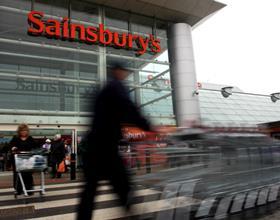
Total grocery market sales are up by only 0.1 per cent compared to last year, as retailers battle for sales during the vital Christmas period.
Despite Black Friday seeing a small increase of 4 per cent in sales, compared to the previous Friday, the event itself has done little to buoy the market overall.
And according to the latest grocery share figures from Kantar Worldpanel, published today (15 December) for the 12 weeks ending 6 December 2015, the latest period sees the lowest growth since June, and is the ninth consecutive month where sales have increased by less than 1 per cent.
Fraser McKevitt, head of retail and consumer insight at Kantar Worldpanel, said: “Although slow growth means a distinct lack of seasonal cheer for the market, the news is more positive for consumers looking to save this Christmas. Last year customers spent an average of £71.33 on their big Christmas shop, but with falling prices set to continue, shoppers are likely to enjoy a cheaper Christmas this year. All supermarkets are cutting prices, particularly on staples like eggs and butter, with the cost of everyday groceries falling by 1.9 per cent this month.
“Despite the difficult market conditions, Sainsbury’s increased sales by 1.2 per cent, growing across its convenience, supermarket and online businesses and increasing its market share to 16.7 per cent. Consumers continue to be drawn to the retailer’s ‘Taste the Difference’ range, and with sales of champagne and sparkling wine up by a quarter it seems clear that the grocer is successfully tapping into demand for premium goods. Sainsbury’s recent run of success predates its popular ‘Mog’s Christmas Calamity’ advert, with the retailer now having grown ahead of the market for three months in a row.”
Things remain tough for Tesco and Asda, with both seeing a fall in sales of 3.4 per cent as consumers drift away from larger stores towards the discounters. It’s not all bad news - while internet shopping has created a challenge for the large out-of-town sites favoured by more traditional grocers, both Tesco and Asda have managed to increase sales online. Elsewhere, Morrisons has started to feel the impact of selling 130 of its M Local convenience stores, with revenues down by 2 per cent.
Aldi and Lidl remain at the combined 10 per cent share of the market they achieved last month, growing sales by 15.4 per cent and 17.9 per cent respectively year-on-year. While many shoppers may not head to Aldi and Lidl for their entire Christmas shop more and more are likely to pop in for trimmings ahead of the 25th, and each discounter should hope to attract a healthy 10 million shoppers over the Christmas period.
The Co-operative and Waitrose were both market share winners this month. The Co-operative’s revival continues with sales growth of 2% and an increased market share of 6.2%. Waitrose has grown revenues by 2.7% and now holds a respectable 5.1% share of the market.



